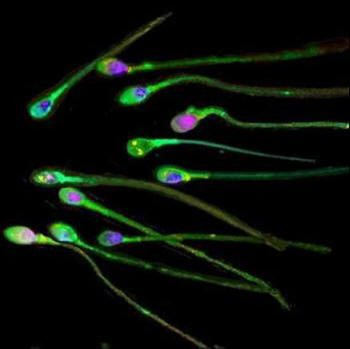
 Therapeutic insemination or in vitro fertilization with donor sperm is considered when there is a male factor resulting from absent or significantly abnormal sperm. When couples plan to start a family the possibility of having an infertility problem is the furthest thing from their mind. The recommendation to use donor sperm is sometimes not easily received by couples. It is important to be well informed about all aspects of this treatment option in order to make a decision whether or not to proceed with treatment.
Therapeutic insemination or in vitro fertilization with donor sperm is considered when there is a male factor resulting from absent or significantly abnormal sperm. When couples plan to start a family the possibility of having an infertility problem is the furthest thing from their mind. The recommendation to use donor sperm is sometimes not easily received by couples. It is important to be well informed about all aspects of this treatment option in order to make a decision whether or not to proceed with treatment.
The use of donor sperm to achieve a pregnancy has been practiced for over a century. It is a common treatment option especially when intracytoplasmic sperm injection (ICSI) is not possible. Pregnancy rates correlate with the manner in which the sperm is used; insemination verses in vitro fertilization (IVF).
Here are some of the questions you should explore during your sperm donation consultation:
- Who are the donors?
- How are the donors screened?
- How much information is available on the donor?
- How do I select a donor?
- Can I use a known donor or a sperm bank?
- What are the procedural aspects of the treatment?
- What are the risks and limitations of this treatment?
- Do I have any alternatives?
- What is the cost?
- What is the success rate?
Each fertility clinic typically contracts out with different sperm banks. Reproductive Resource Center’s (RRC) contract sites are: www.fairfaxcryobank.com, www.xytex.com,www.cryolab.com, www.cryobank.com and www.internationalcryo.com. You will want to consider specimen costs and donor availability as you look at sperm banks.
Like egg donation, sperm donation is an excellent option for couples wishing to experience pregnancy and a genetic connection to the child.
*image: Human Sperm. Copyright (c) 2003 The Journal of Science.
 Patient Portal
Patient Portal